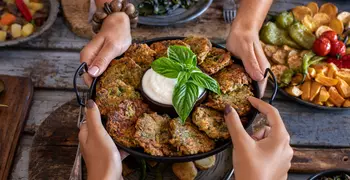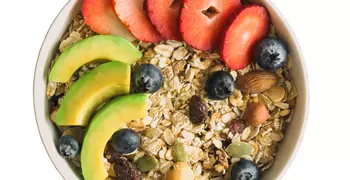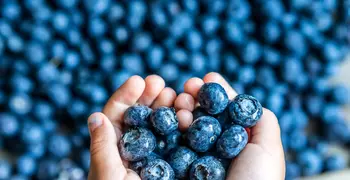Confused About Food? The Truth Is Actually Quite Simple!
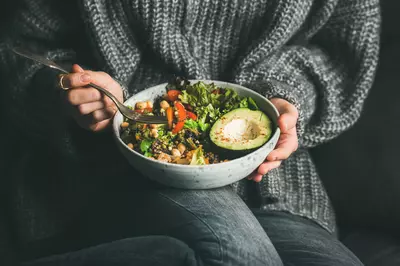
 Paleo? Vegan? Low carb? High fat? It seems as though the advice on what to eat changes daily and no one agrees. It’s enough to make anyone give up and grab a soda! But Dr. David Katz, Founding Director of the Yale-Griffin Prevention Research Center says it isn’t complicated at all once we get at the truth behind the biggest food myths.
Paleo? Vegan? Low carb? High fat? It seems as though the advice on what to eat changes daily and no one agrees. It’s enough to make anyone give up and grab a soda! But Dr. David Katz, Founding Director of the Yale-Griffin Prevention Research Center says it isn’t complicated at all once we get at the truth behind the biggest food myths.
Myth #1: Food experts can’t agree on anything
On the contrary, nutritionists and dieticians all agree that the basis of a healthy diet is simply whole, minimally processed, plant-based foods (vegetables, fruits, whole grains, beans, lentils, nuts, and seeds with water to drink). This consensus is based on a mass of consistent evidence from decades of research around the globe on foods that support a long and vigorous life.
Myth #2: Eating well is difficult
It is true that a healthy diet requires some shopping and cooking savvy, but it doesn’t take much time to acquire these skills. Your effort will be well rewarded with delicious, healthy meals that are easy to make.
Myth #3: Eating well costs more money
While fresh fruits and vegetables can cost more, there are easy ways to make healthy eating budget friendly. Beans and lentils are immensely cheaper than meat products and offer similar nutritional value. By cutting out drinks like soda and drinking water you can also save a significant amount of money every year.
Myth #4: Eating well is an individual’s responsibility
We are all too quick to blame the individual for their eating habits. And yes, while we each need to take responsibility for our own health, it is also the obligation of our leaders to create a culture and environment where the healthy choice is the easy choice. Instead, our leaders have ignored their responsibility, leaving us prey to the manipulation of the food industry, which entices us to eat food that isn’t good for us through constant ads, product placement, and junk foods deliberately designed to addict us.
 So what can you do?
So what can you do?
Now that you know the simple truth about eating well, you can start to:
-
Make whole, wholesome, plant-based foods (fruits, vegetables, whole grains, beans, lentils, nuts, seeds, and water) the basis of your diet. If you like, feel free to add some meat or dairy or wine or treats--as supplemental elements.
-
Invest in basic cooking and shopping skills—make it fun and go to a community ed class with friends or find an event for singles.
-
Replace some meat on your shopping list with beans and lentils, and save money while improving your health.
-
Question the unhealthy foods marketed to us and our children. As Dr. Katz says, if we wouldn’t feed it to an otter in the zoo, why would we feed it to our children? Why do we allow food companies to create addictive foods that are bad for us?
Dr. David Katz shares his perspective
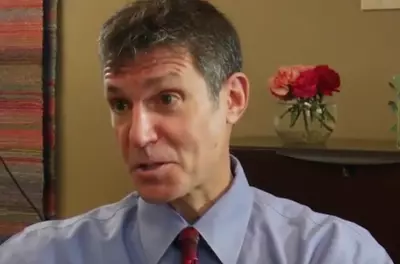
Dr. David Katz: What are the top food myths?
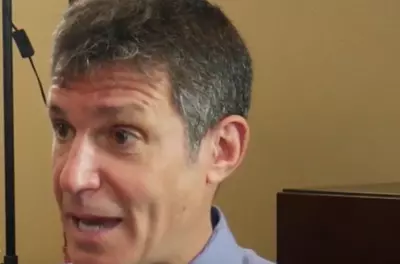
Dr. David Katz: Is there such a thing as an optimal diet?
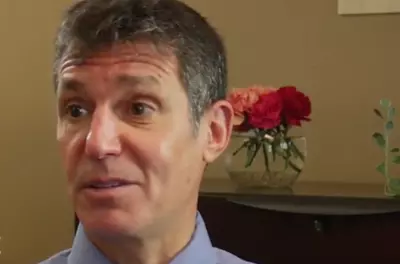
Dr. David Katz: What is the role of community in heath?
Dr David Katz is the Founding Director of the Yale-Griffin Prevention Research Center, the Past President of the American College of Lifestyle Medicine, and the Founder of the True Health Initiative. He has researched and written extensively on food and nutrition and is the author of the textbook Nutrition and Clinical Practice and the off-cited review article: “Can We Say What Diet Is Best for Health?”

